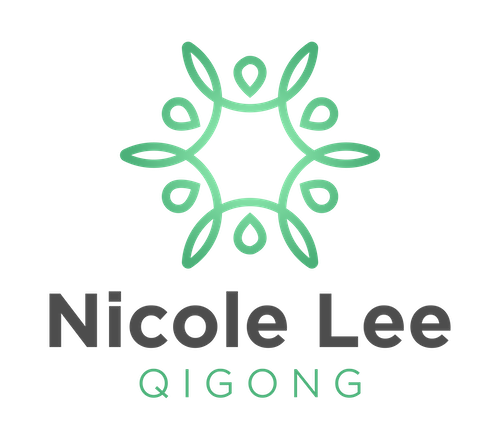The Disadvantages of Qigong: Why a Holistic Approach is Key to an Effective Practice
Practicing Qigong regularly brings profound benefits across every layer of our being — physical, energetic, mental, and emotional. It can improve bodily functions, boost energy, support emotional regulation, balance the nervous system, and cultivate a deeper sense of connection.
But what doesn’t get talked about as much are the disadvantages of Qigong when it’s practiced in a fragmented or overly reductionist way.
When people isolate one aspect of Qigong, whether it’s an element, an organ system, an emotion, or a single technique, they limit the depth of their practice and, in some cases, create more imbalance than they resolve. True transformation comes from working with the body, mind, and spirit in a holistic way.
One of the Biggest Disadvantages of Qigong: Narrow Focus
One of the biggest disadvantages of Qigong is assuming that working on a single problem in isolation will lead to lasting results. For example:
If someone struggles with stress, they might over-focus on calming techniques without addressing underlying stagnation or depletion in their system.
If they feel low on energy, they might focus only on "building Qi" without considering other factors—such as emotional compression or stored trauma—that may be preventing that energy from circulating.
If they’re drawn to one element or season, they may keep reinforcing that energy without realising it needs balancing from other aspects of the Five Element cycle.
This kind of narrow focus can lead to stagnation, excess, or even dependency on certain techniques—without actually resolving the deeper imbalances.
How to Avoid the Disadvantages of Qigong with a Holistic Approach
Qigong isn’t just about collecting techniques, it’s about understanding how energy moves through cycles and relationships. Everything in your system is connected. If one part is weak or out of balance, it’s never just about that part, it’s about how the whole system functions and flows together.
A truly effective practice doesn't simply focus on “fixing” symptoms. It’s about supporting the whole system to bring balance and vitality back to every aspect of your being. This means:
Balancing Yin and Yang, rather than over-focusing on relaxation or stimulation.
Recognising that every energetic quality is part of a larger cycle, it can’t be understood in isolation.
Adapting practice to the individual rather than forcing a one-size-fits-all approach.
This kind of narrow focus can lead to stagnation, excess, or even dependency on certain techniques, without actually resolving the deeper imbalances. For instance, let’s look at a real-life example using the Metal element...
The Metal element, which relates to the Lungs and Large Intestine, as well as the emotions of grief and sadness. Someone with breathing difficulties might assume they should just do Metal element Qigong to strengthen the Lungs. Or if they’re grieving, they might think focusing on Metal will help them process it.
But the body doesn’t work in isolation.
Metal doesn’t stand alone, it’s shaped by Fire, supported by Earth, and feeds into Water. So, if someone only works with Metal without considering the bigger picture, they might actually reinforce the imbalance. Maybe their Metal is already excessive, leading to rigidity, control, or emotional shut down. Or maybe it’s deficient, leaving them collapsed, weak, and unable to let go. A truly effective approach looks at the whole system, bringing balance rather than just doubling down on one aspect.
The Truth About the Disadvantages of Qigong
What people often refer to as the disadvantages of Qigong are actually the result of an incomplete approach or an unwillingness to explore the root cause of their imbalances, not a failure of the practice itself.
One of my teachers, Kenneth Cohen, says, "Qigong is nothing special—yet very special." It’s not a quick fix or a magic pill. (Though I often joke that if Qigong were a pill, everyone would take it, because it sure can feel amazing.)
Qigong practice requires devotion, awareness, and radical self-responsibility, along with a willingness to evolve. When practiced with a narrow or rigid mindset, Qigong can feel ineffective, frustrating, or even imbalancing. But when approached holistically, it becomes a deeply transformative tool for lifelong balance and resilience.
Are There Real Disadvantages to Qigong?
The biggest disadvantage of Qigong isn’t the practice itself, it’s how it’s sometimes practiced. In some cases, it’s also about how it’s transmitted or taught. A fragmented, reductionist approach limits its potential.
But when Qigong is understood as a dynamic, interconnected system, it becomes something far more powerful, a way of working with one’s own energy, deepening connection to the natural world, and moving in harmony with the rhythms of life.
The real magic of Qigong lies in its ability to help us reconnect with our innate balance. When practiced holistically, it becomes a tool for not just addressing symptoms, but for cultivating enduring vitality, resilience, and harmony on every level of our being.
If you're ready to embrace Qigong in a way that supports the whole of you — body, mind, and spirit — I’d love to help. Reach out, and we can explore how a more holistic approach can bring lasting transformation, balance, and resilience into your life.




